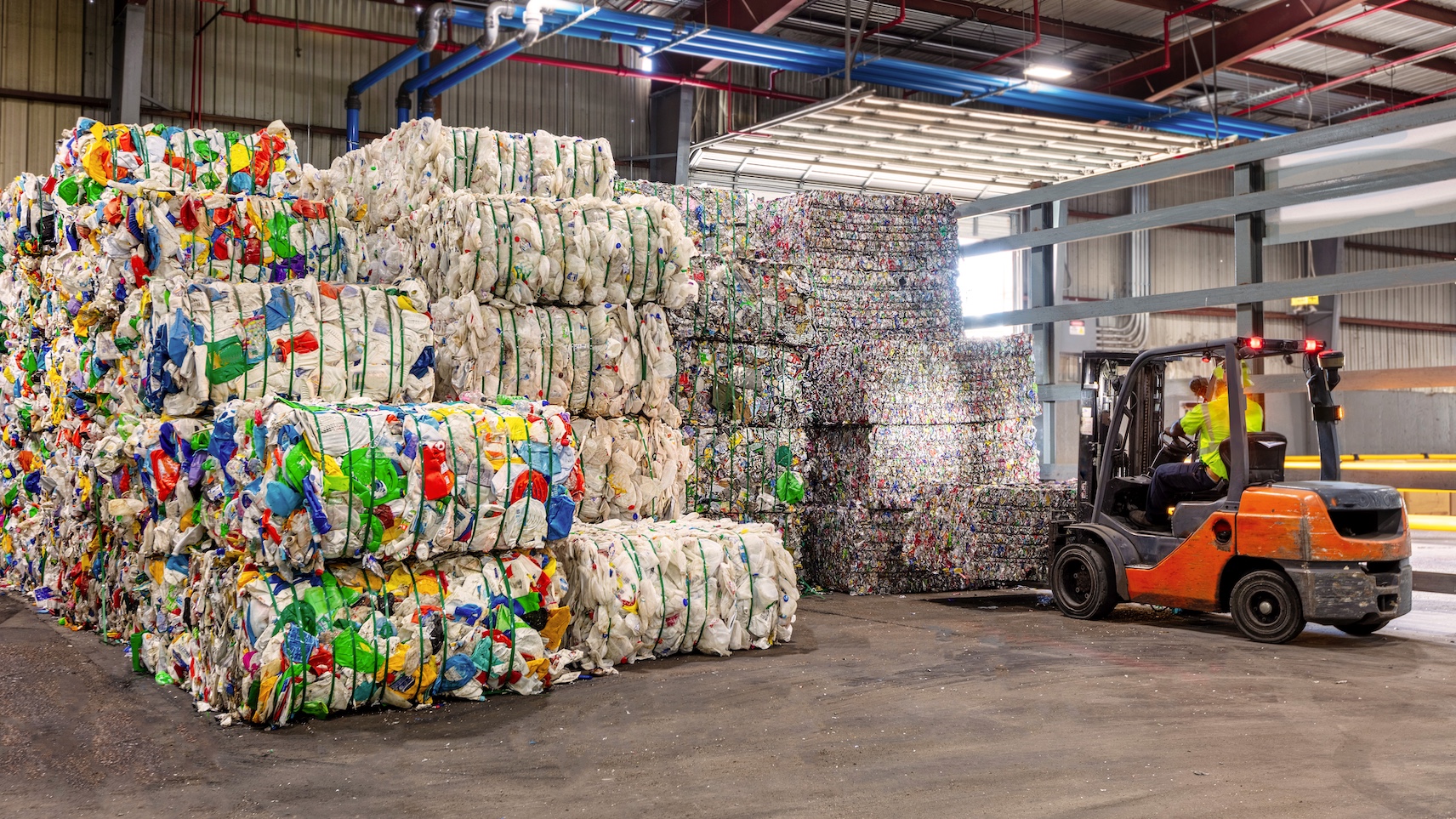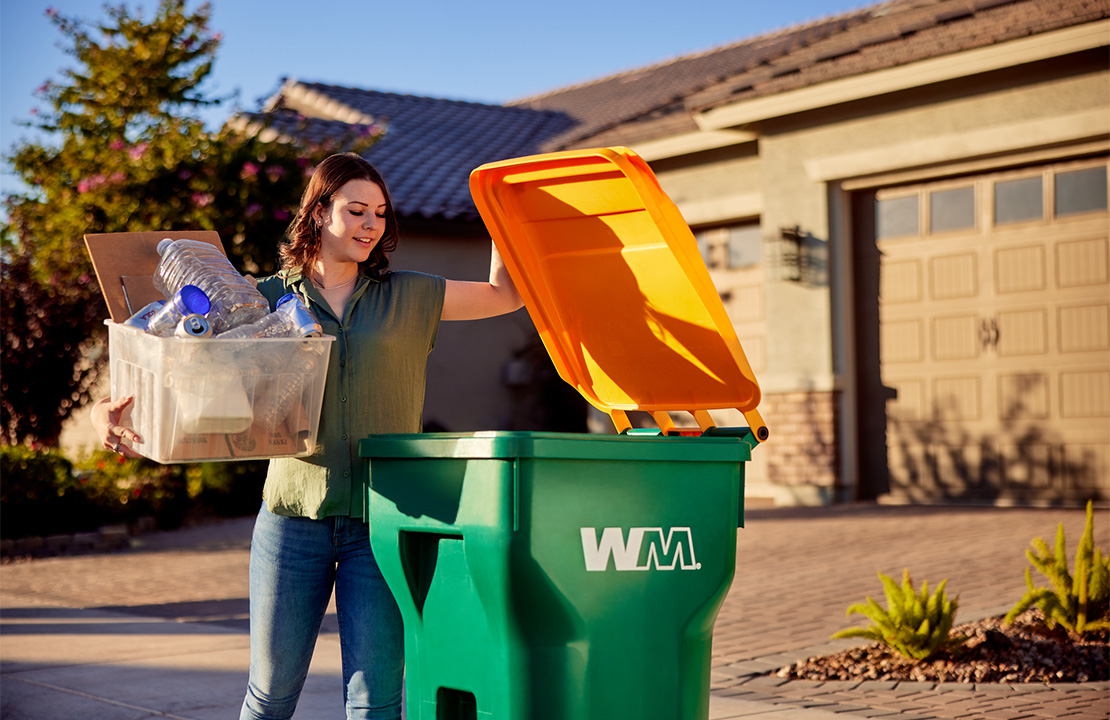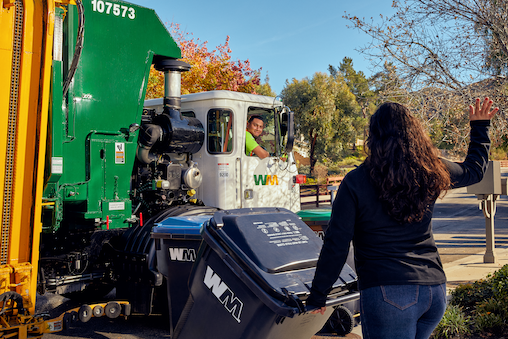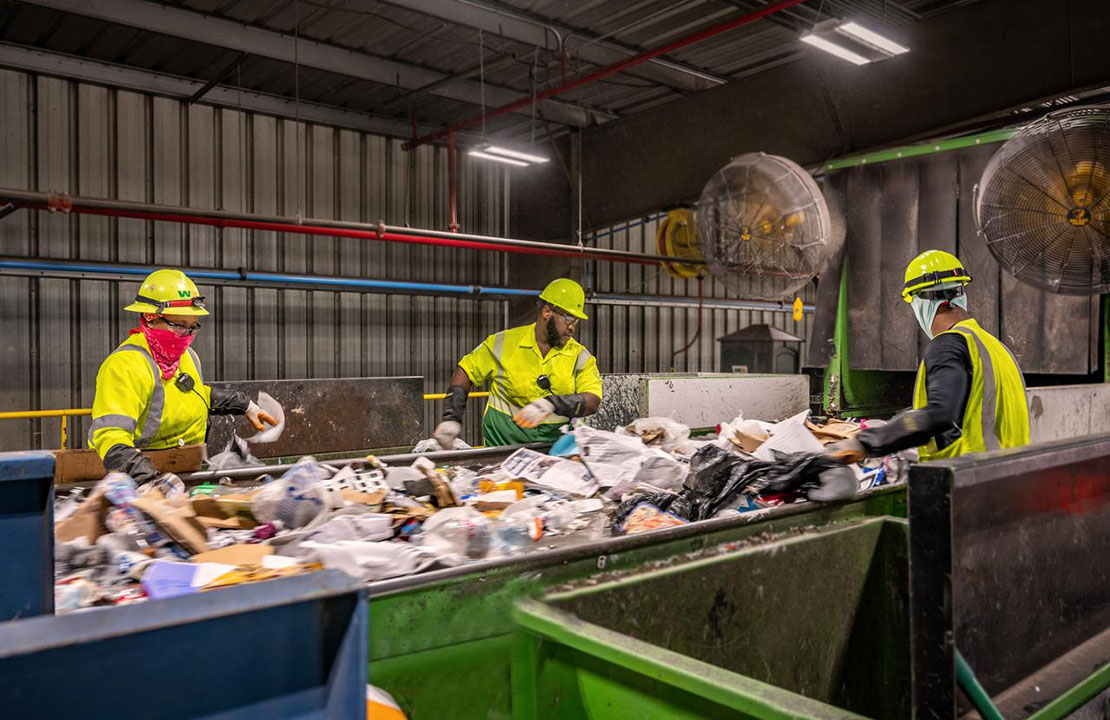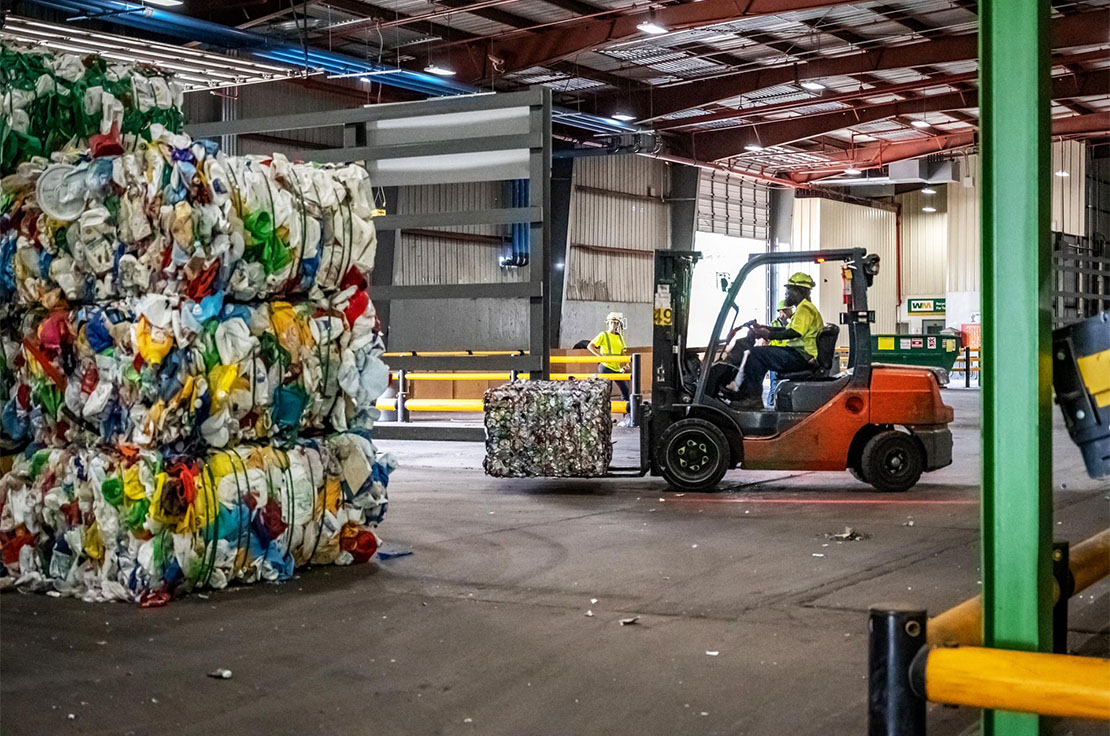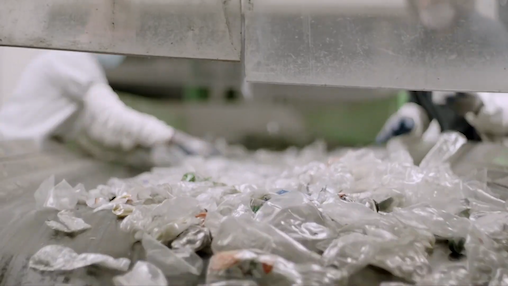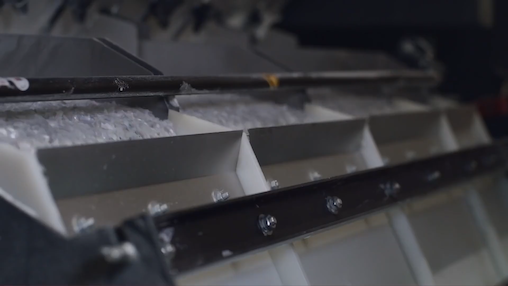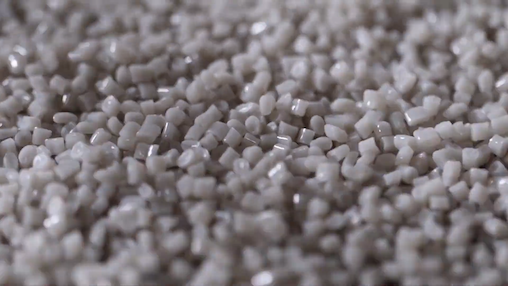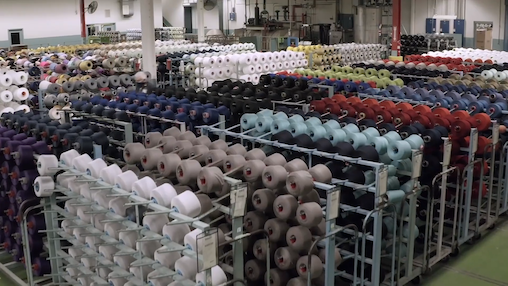In pursuit of our intention to recycle materials with responsible domestic end markets, WM generally does not export plastics outside of North America that are collected on WM’s residential routes and processed in WM single-stream recycling facilities, except in very limited circumstances when no other commercially viable domestic end markets are available.
WM is an advocate for responsible management of recyclable materials through end of life. With this objective in mind, we are always working on various innovative ways to reduce the environmental impact of plastic recycling.
